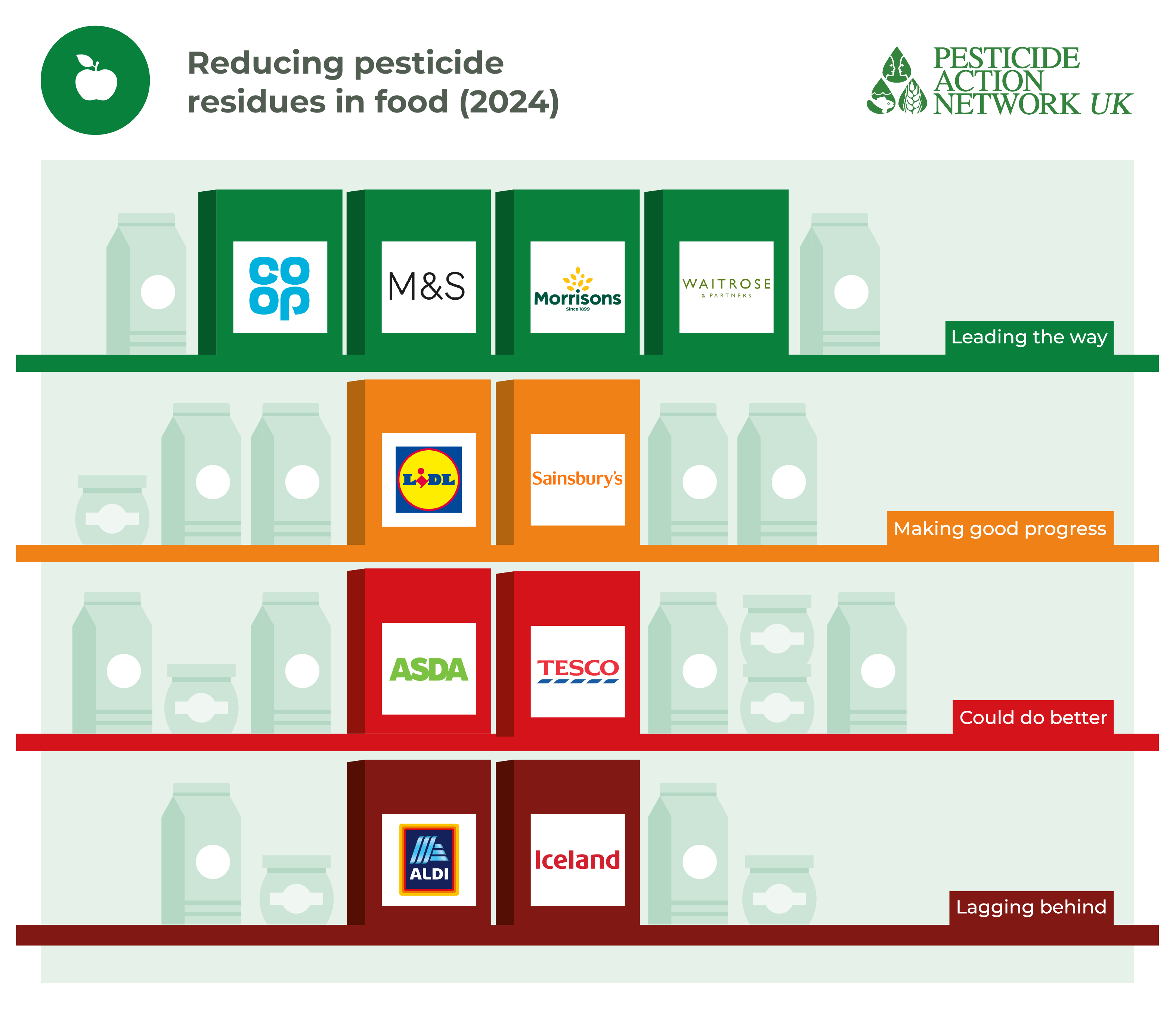
Pesticides used in agriculture can appear as residues in our food. Fruit and vegetables tend to contain the most pesticide residues (both in terms of variety and amounts) but they can also be found in many other types of food including grains such as wheat and rice, meat, dairy, wine and honey.
The residues detected on a food item will depend on which pesticides have been used and how persistent they are or, put another way, how long they take to decompose. Many pesticide residues are contained within the entire piece of produce rather than just on the surface. As a result, peeling fruit and vegetables before eating is often not enough to prevent exposure to pesticides. In addition, residue safety levels are set for just one pesticide at a time but items on supermarket shelves can contain traces of as many as 17 different pesticides.
All UK supermarkets conduct their own residue testing programmes. Their tests are largely aimed at identifying produce containing residues above the limit set by government which is known as the ‘Maximum Residue Level’ (MRL). When an exceedance of an MRL is identified, a supermarket will often work with the supplier to reduce residues and ensure the problem doesn’t happen again. Sometimes supermarkets will identify a residue problem with a particular food item from a specific country – for example, grapes from South Africa – and put in place an action plan for tackling it.
Almost all supermarkets have an action plan in place if they identify a residue which exceeds the legal limit, but the level to which it needs to exceed will vary depending on the supermarket. For example, some supermarkets carry out stringent investigations as soon as a residue goes beyond a third of the legal limit, while for others its 80 or 100 percent.
Currently, only four of the top ten supermarkets (Co-op, M&S, Morrisons and Waitrose) publish the results of their residue testing programmes in sufficient detail to enable customers to find out what residues appear in which produce. While this is major progress since 2019 when not a single supermarket published this information, all other supermarkets should follow suit. While a number of other supermarkets do publish topline summaries of their residue data, they are not in enough detail to enable their customers to make more informed shopping decisions.
Ultimately, the best way to tackle pesticide residues is to use fewer (or no) pesticides. Given the huge uncertainty around how exposure to multiple pesticides through food residues impacts upon human health, we should be taking a precautionary approach and reduce pesticide use whenever possible. Residues continue to be highly unpopular with UK shoppers who tend not to want traces of chemicals in their food.








